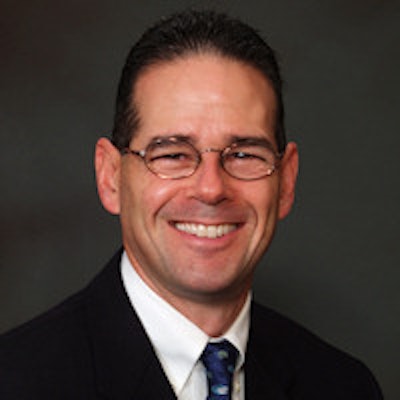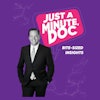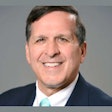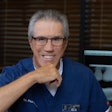
In a competitive and challenging marketplace, new ways of working with your patients to increase compliance, improve their oral health, and help a practice thrive are needed. One solution is to bring consumer products into a practice, not just for revenue, but for your patients' benefit.
DrBicuspid.com talked with two established dentists about the advantages, and the drawbacks, of offering products to patients in the office. Richard Nagelberg, DDS, practices in Plymouth Meeting, PA, and Charles Rodgers, DDS, is the vice president of clinicians for Pacific Dental Services in Irvine, CA.
 Richard Nagelberg, DDS.
Richard Nagelberg, DDS.
Dr. Nagelberg said he resisted bringing products into his practice for some time, until he realized there was an opportunity to increase his patients' oral health, increase their compliance, and also save them some valuable time.
"When I decided to bring product on board a few years ago," Dr. Nagelberg said, "I thought to myself, everybody has 'time poverty,' meaning nobody has enough time to meet all the demands on their day. So if we can save patients some time and gas by providing products that we highly recommend, that would be great. Patients really appreciate the time savings and being able to start using the products we recommend right away."
Dr. Rodgers agrees that saving time is a benefit.
"One of the biggest advantages to having products in an office is patient convenience," he said.
Dr. Rodgers pointed out that, in his experience, patient compliance also increases because of this convenience.
“The main reason is for the patients' benefit. We want to help them improve or maintain their oral health for the rest of their lives.”
For Dr. Nagelberg, while offering products in a practice has several advantages, they all spring from the central advantage of patient appreciation for showing them how to take care of themselves.
"We get positive comments all of the time about how we provided a product that makes my patients' mouth feel so much better," he said. "We often hear patients say that nobody ever told them about this before, no one ever explained this to them before."
For the practitioners, it's about more than just the time a patient is in the office. It is about helping patients improve or maintain their oral health all year.
"What we explain to patients is that we aren't just trying to help them manage the health of their teeth and gums from March to September. We are trying to help them manage their oral health for the rest of their lives," Dr. Nagelberg said.
Dr. Rodgers said the products brought into a practice are "ideally associated or adjunctive to procedures provided at the office," such as mechanical toothbrushes, chlorhexedine, and flossers.
 Charles Rodgers, DDS.
Charles Rodgers, DDS.
"A good example how a product could be used in office is chlorhexedine, which could be used while the patient is at the office but also provided or sold for home use after specific visits," he said.
Dr. Nagelberg also cited products that help patients with xerostomia.
"Many patients in every dental practice have xerostomia," he said. "We provide an antioxidant gel and an electric toothbrush that work dramatically for patients with dry mouth. Our patients are so appreciative, because this makes a significant improvement in their daily activities."
When asked about the kind of training and buy-in that are needed for a practice's staff, Dr. Nagelberg said the clinical staff needs detailed knowledge about every product the office provides, while the administrative and office staff need a working knowledge. He gave an example of why this level of knowledge is important throughout the practice.
"Often, I will make a recommendation to a patient," he said. "Then after I leave the treatment room, the patient turns to the hygienist or the assistant and asks, 'Do you really think I should do or get what he recommended?"
The credibility of all staff members is extremely high with the office's patients, who cultivate relationships with staff members other than him, Dr. Nagelberg noted.
"If anyone in the office is not on board [with a product], that could confuse our patients. If the patients see the office staff is hesitant in any way, they will not follow my recommendations," he said.
What are the disadvantages?
Dr. Rodgers noted that there are issues to be aware of, such as products disappearing over time, improper tracking, or use by the employees, but he emphasized that an office needs to make sure it focuses on what it does best.
"Another disadvantage of stocking and selling products in the office is when it becomes a distraction from what an office primarily does best -- dentistry," he said. "This can become especially distracting when a large variety of products are offered, which may take away time from more lucrative opportunities to provide patient care."
However, ultimately for Dr. Nagelberg, it is about doing the right thing for his patients' oral healthcare.
"We make these recommendations because we know the products work," he said. "It's not about the money. The money follows, but the main reason is for the patients' benefit. We want to help them improve or maintain their oral health for the rest of their lives."


















